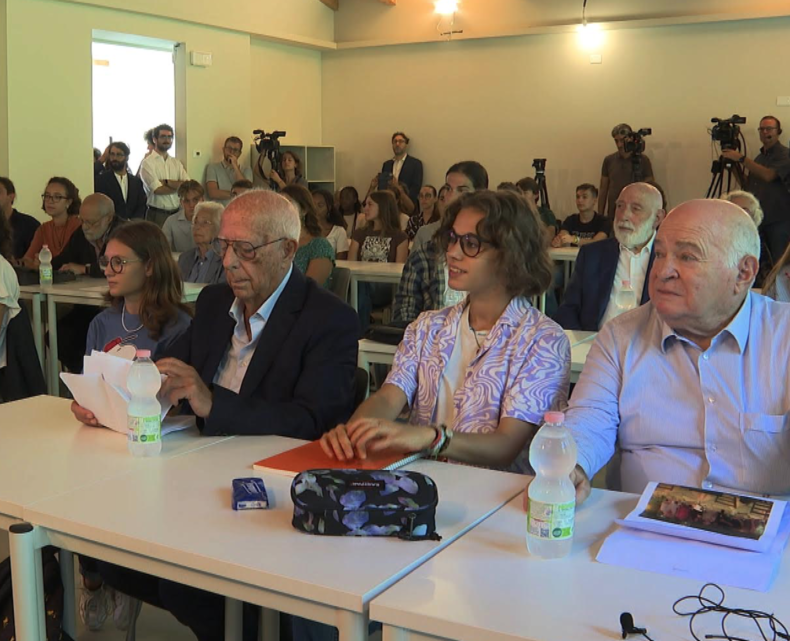Eight testimonies of racial laws back to school, “Memory must lead the future”

“Memory is the ability to acknowledge things, to treasure them, to educate, and to go beyond. But to do that, it is necessary to plant strong pickets. And that of today, seems to me the strongest”. So Italian Minister of Education Patrizio Bianchi last week at the opening of an extraordinary day of testimony: the return to the classroom of eight Jewish students expelled or excluded from school by the promulgation of racist laws. It was September 5th, 1938. Exactly 84 years later, the eight testimonies made their entrance into a classroom of Rondine Cittadella della pace (province of Arezzo) to sit along with 31 students that chose to attend the fourth year of high school at this center of excellence in education for dialogue. Another ex-student, Senator for Life and Holocaust survivor Liliana Segre, who shared the same discrimination, joined the event remotely.
The occasion is a strong signal, Minister Bianchi pointed out, “also to those that, in the world, are now let off and forgotten”. And this thanks “to whom was once excluded and is now a bearer of inclusion”. The theme was explored by the testimonies themselves, welcomed by Franco Vaccari, the founder and president of Rondine, an organization committed to reducing armed conflicts around the world and spreading its method for the creative transformation of conflicts, and President of the Union of the Italian Jewish Communities Noemi Di Segni, in a dialogue hosted by Repubblica deputy editor Francesco Bei.
Ugo Foà, Neapolitan, explained that his was a large class of 41 students. “However, nobody was interested in who, like me, was expelled. It was like we disappeared”, he remarked. Miriam Cividalli, from Florence, remembered the day Hitler visited the city in May 1938. It was the first sign of the crimes which were to follow. Lello Dell’Ariccia, from Rome, illustrated the Memory Project. The association, which collaborated also on the event, aims “to pass the baton to young people so that a government can never again appropriate the life and freedom of individuals”.
For his part, Fabio Di Segni recounted his mother’s sorrow, while living in Verona and being forbidden to enroll in one of the alternative schools opened by some Italian Jewish communities after the approval of racial laws. “The numbers in Verona were too small to have one”, he said. The reality of these “apartheid schools” was described by the Roman Claudio Fano, who also highlighted some of the paradoxes related to identity issues and to the “backdated” baptism certificates that some had at the time. Gianni Polgar, a native of Fiume (Croatia), spoke of Italy as a country that “had not yet come to terms with history”, while Carla Neppi Sadun, from Ferrara, focused on the humiliations the fascist system and his acolytes inflicted on her.
Another relevant issue, that of the aftermath, was introduced by Nando Tagliacozzo, from Rome. “As we went back to school – he accused – nobody asked us anything”. Finally, Liliana Segre remembered that dramatic September 5, her parents’ pain in explaining to her the expulsion reasons, her reaction of incredulity, and the cold displayed by one of her teachers. Indelible wounds, which also were brought from indifference. “However – she stressed – Rondine is not indifferent. The inclusion schools is the opposite of whom make you find the door closed”. “The whole of Italy, starting from that day, was depleted of human beings and knowledge and knowledge”, the concluding annotation of President Di Segni. An invitation to young people to remember that tragic past but also to approach, with interest and curiosity, “the millenary history and values” of Judaism.
